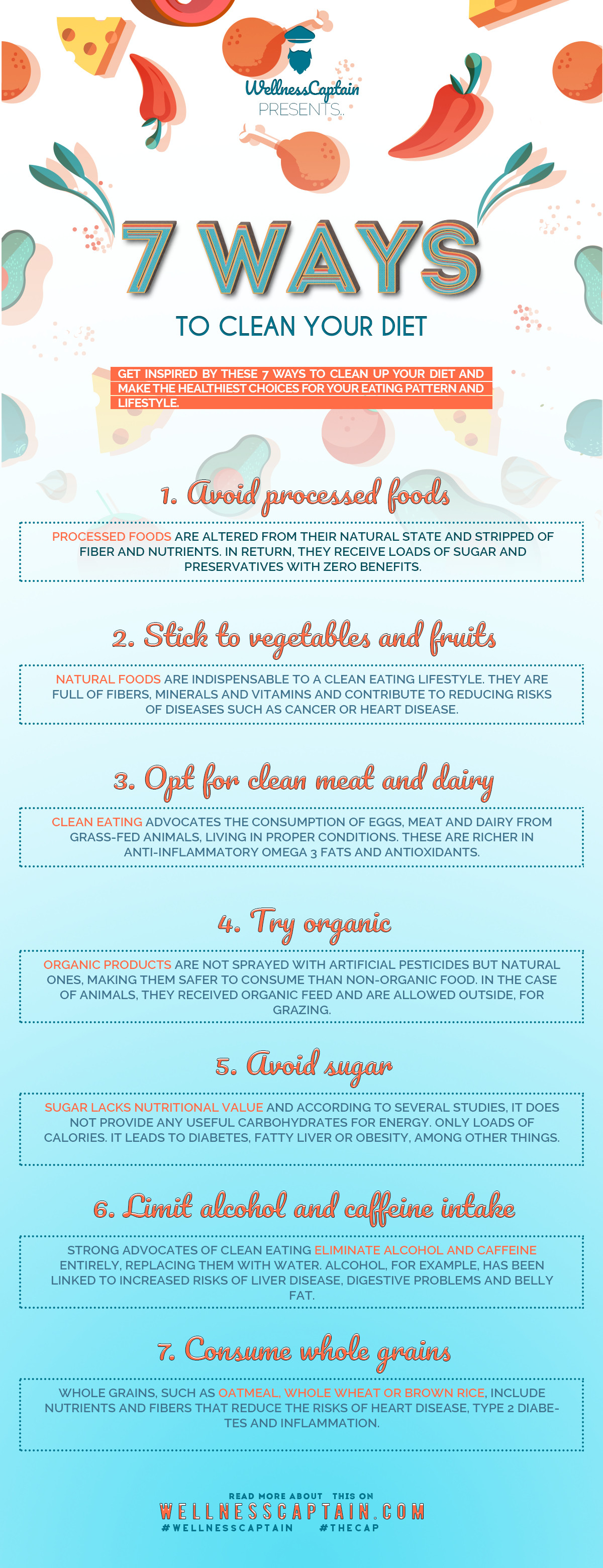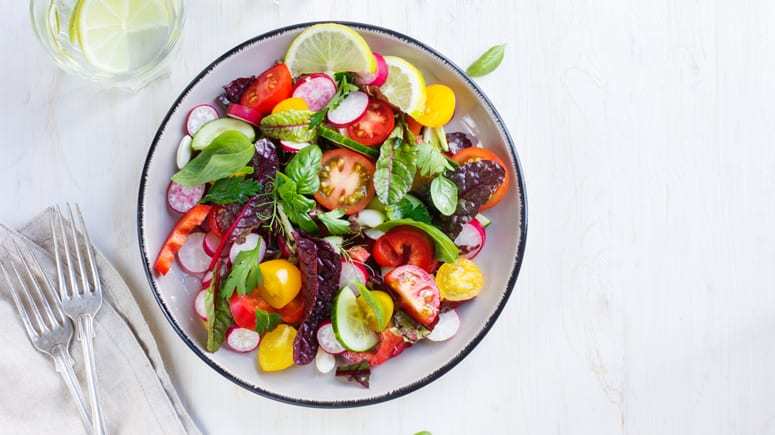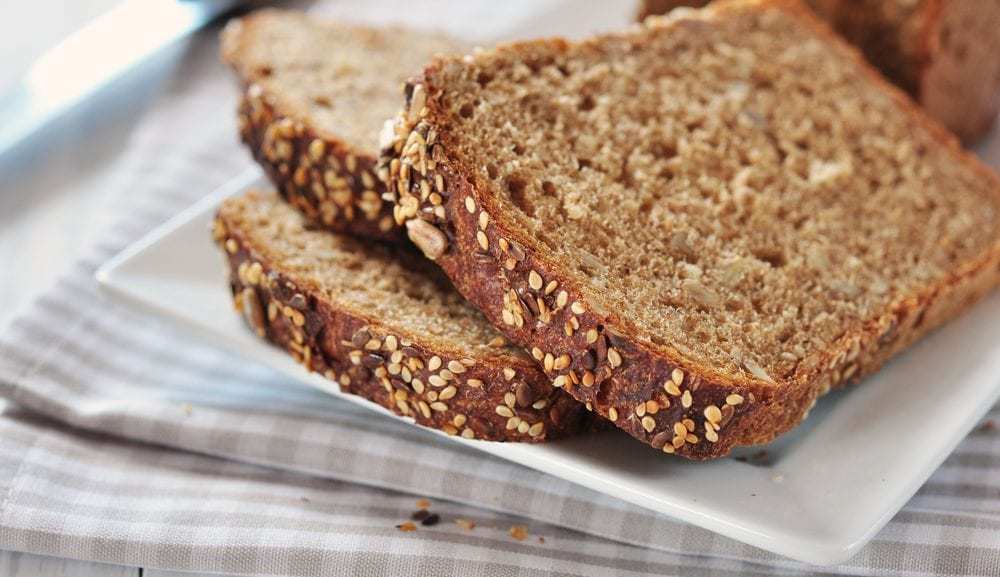7 Best Ways to Clean Up Your Diet

More and more people nowadays have become more aware of the need to have a proper, clean diet in order to be healthy. And by clean diet, we refer to the inclusion of real foods with real nutritional value and the exclusion of altered, processed foods.
So, get inspired by these 7 ways to clean up your diet and make the healthiest choices for your eating pattern and lifestyle.

Avoid processed foods
As the name suggests, processed foods are the antithesis of clean eating. This is because they are altered from their natural state and stripped of fiber and nutrients. In return, they receive loads of sugar and preservatives with zero benefits.
In addition, processed foods are harder to digest, include more calories, making them more likely to facilitate weight gain. More than that, they have been linked to higher risks of inflammation and heart disease.
Stick to vegetables and fruits
Natural foods are indispensable to a clean eating lifestyle. They are full of fibers, minerals and vitamins and contribute to reducing risks of diseases such as cancer or heart disease.
Some clean eaters promote only the consumption of fresh fruits and veggies. These can be eaten right after being picked and washed. Others, on the other hand, are also on board with frozen or canned products. They apparently have just as many nutrients as fresh produce. Specialists recommend between five to nine servings per day.

Opt for clean meat and dairy
And when we say clean, we refer to products coming from naturally raised animals.
Nowadays, many animals are raised in large-scale factory farms and receive antibiotics and growth hormones. This is not healthy for anyone.
Clean eating advocates the consumption of eggs, meat and dairy from grass-fed animals, living in proper conditions. These are richer in anti-inflammatory omega 3 fats and antioxidants.

Try organic
For some people, a clean diet equals an organic diet. Organic products are not sprayed with artificial pesticides but natural ones, making them safer to consume than non-organic food. In the case of animals, they received organic feed and are allowed outside, for grazing.
According to certain studies, organic produce contains higher levels of vitamins C and antioxidants. Being fresh, it is also tastier and more nutritious than conventional produce.
Avoid sugar
Sugar is deemed as the public enemy number one for health. It has numerous adverse effects, leading to diabetes, fatty liver or obesity, among other things.
It lacks nutritional value and according to several studies, it does not provide any useful carbohydrates for energy. Only loads of calories.
Therefore, read the labels carefully and try to avoid or limit the sugar intake. This also applies to foods that seem healthy or seemingly sugar free.

Limit alcohol and caffeine intake
Strong advocates of clean eating eliminate alcohol and caffeine entirely, replacing them with water. This is because alcohol, for example, has been linked to increased risks of liver disease, digestive problems and belly fat.
If that’s too restrictive, a good idea would be to at least stick to what experts recommend. As such, one serving of alcohol for women and two for men, particularly wine. In the case of caffeine, the recommended intake is 400 milligrams a day.
Avoid alcoholic beverages with added sugar, such as cocktails, or combinations of coffee, milk and sugar, such as latte or cappuccino.
Consume whole grains
Eating some pasta or bread from time to time may not seem so bad. And it really isn’t. Unless it’s made of refined carbs. These are highly processed and have little to no nutritional value.
Therefore, opting for whole grains can make a huge impact to your diet. Whole grains, such as oatmeal, whole wheat or brown rice, include nutrients and fibers that reduce the risks of heart disease, type 2 diabetes and inflammation.
In addition, it promotes weight loss by reducing the onset of excessive belly fat.




